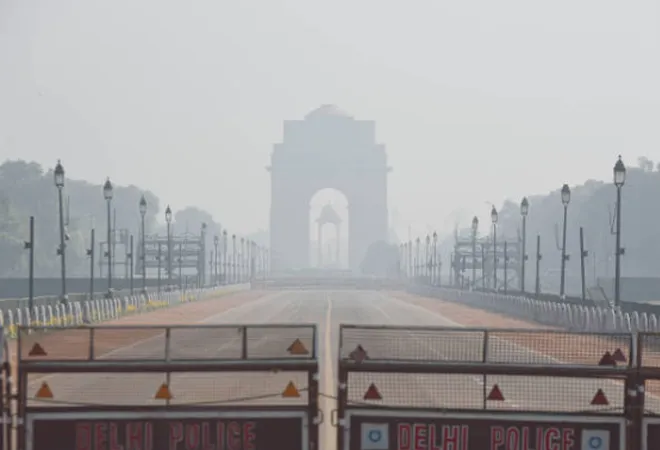
Worsening air pollution has been amongst India’s most pressing problems in recent years. Toxic air is not only a massive health and environmental concern, but also takes a huge economic toll: it impedes development and affects people’s welfare. According to the Health Effects Institute, in 2015, over 1.1 million premature deaths in India were caused by air pollution. In 2019, air pollution led to about 18 percent of all deaths in the country. In the same year, it resulted in an economic loss of approximately 1.4 percent of GDP. Studies have identified the severely negative impacts of air pollution across a multitude of sectors, including labour productivity and crop yields.
Indeed, India’s air quality has deteriorated exponentially in the past few decades, due to various reasons including rapid urbanisation, industrialisation, and population growth. According to IQAir, in 2020, India ranked third amongst all countries in the world with the worst air quality. The northern regions alone are home to no less than 13 of the 15 most polluted cities in the world.
Governments have initiated policy initiatives and created regulatory agencies and other institutions all meant to combat air pollution; they are highly inadequate. The current scenario shows a need for better and more effective ways of improving air quality across the country, especially in the most dense and populated urban spaces. One imperative is to ramp up the role of technology and encourage the private sector to engage in partnerships between each other, and with the government, to tackle air pollution. It is equally important to involve the grassroots, especially the most vulnerable populations, through community-based initiatives.
Any effort, however, must begin with accurate and timely information on air pollution. This will ensure that awareness is heightened about the magnitude of the crisis and its manifold impacts. Disseminating proper, adequate information should also seek to inspire individual action, and a collective commitment to a future where there is clean air for all. This fact sheet is ORF’s endeavour to contribute to that goal.
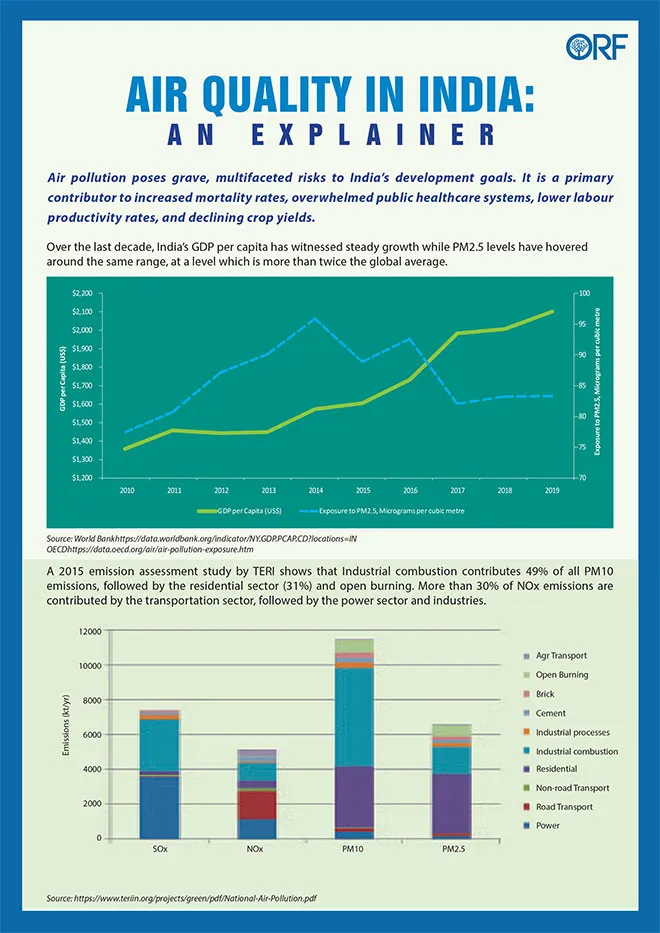
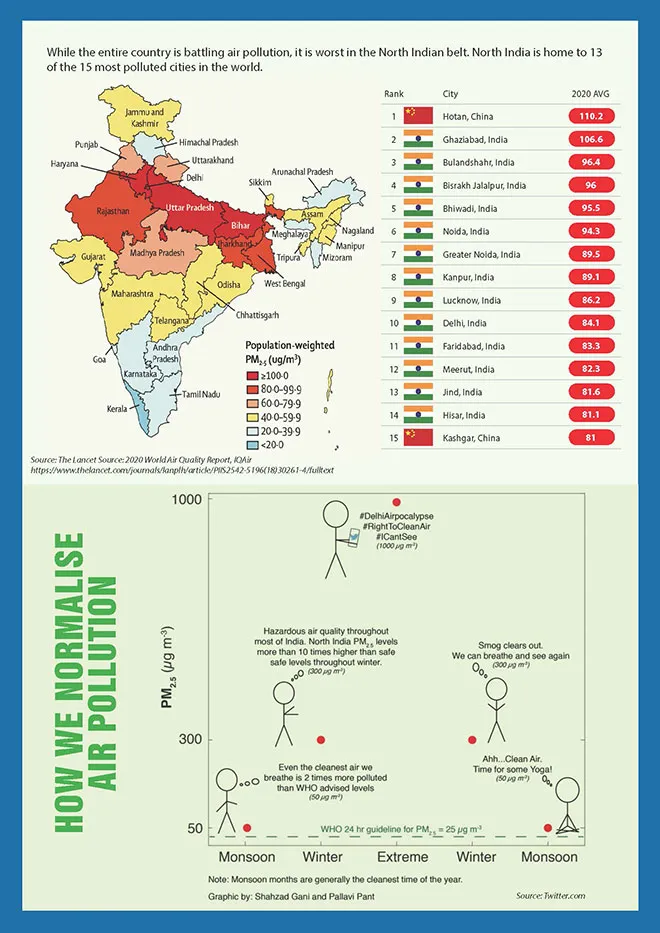
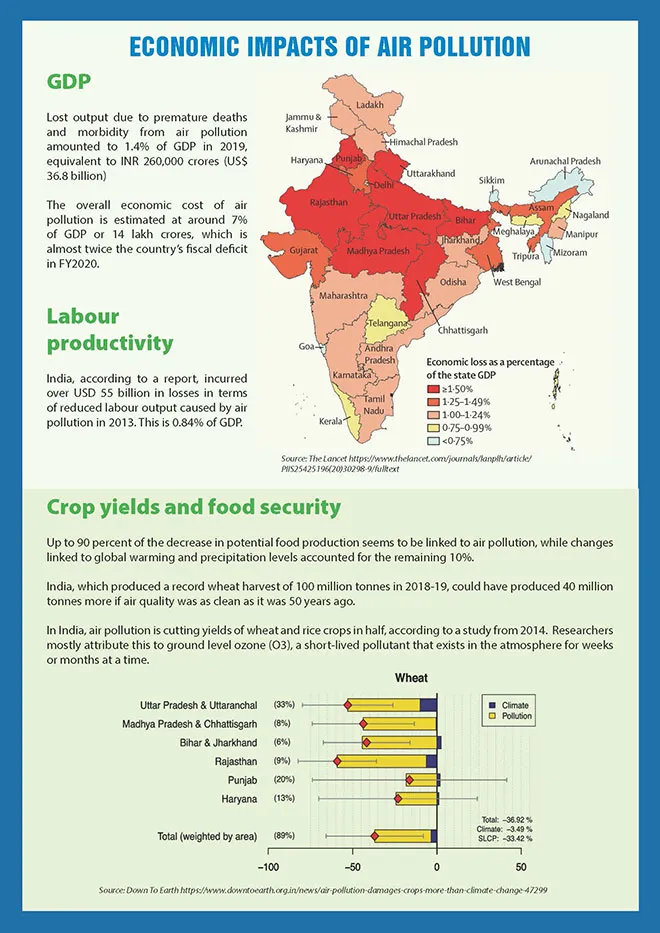
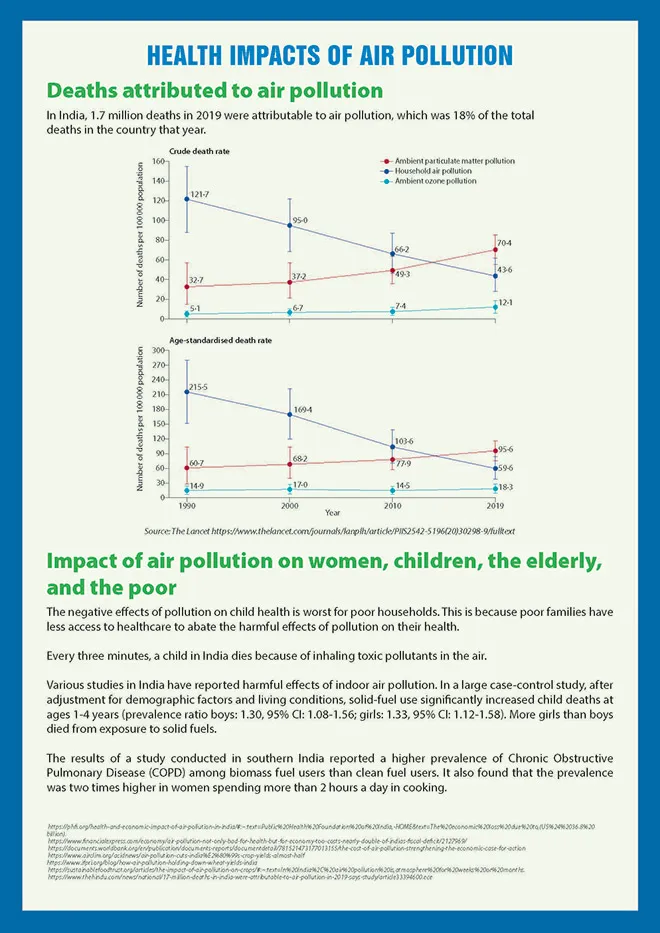
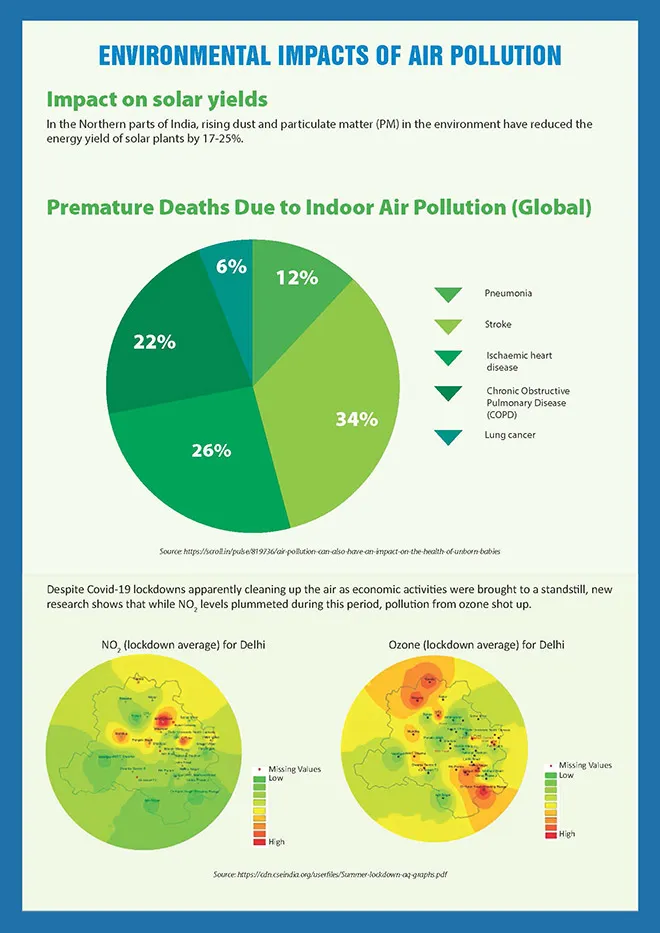
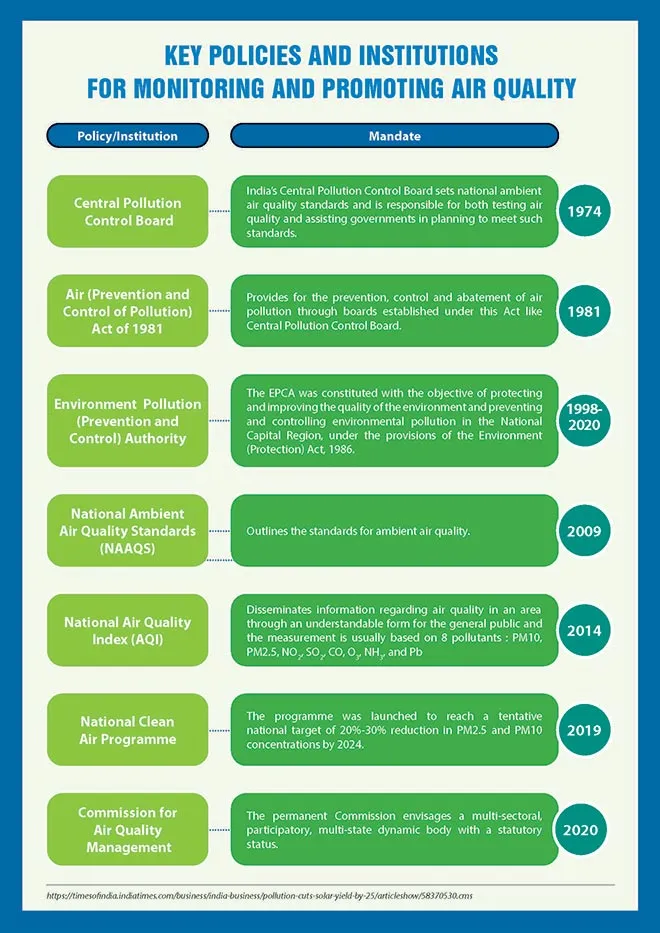
The views expressed above belong to the author(s). ORF research and analyses now available on Telegram! Click here to access our curated content — blogs, longforms and interviews.



 Worsening air pollution has been amongst India’s most pressing problems in recent years. Toxic air is not only a massive health and environmental concern, but also takes a huge economic toll: it impedes development and affects people’s welfare. According to the Health Effects Institute, in 2015, over 1.1 million premature deaths in India were caused by air pollution. In 2019, air pollution led to about 18 percent of all deaths in the country. In the same year, it resulted in an economic loss of approximately 1.4 percent of GDP. Studies have identified the severely negative impacts of air pollution across a multitude of sectors, including labour productivity and crop yields.
Indeed, India’s air quality has deteriorated exponentially in the past few decades, due to various reasons including rapid urbanisation, industrialisation, and population growth. According to IQAir, in 2020, India ranked third amongst all countries in the world with the worst air quality. The northern regions alone are home to no less than 13 of the 15 most polluted cities in the world.
Governments have initiated policy initiatives and created regulatory agencies and other institutions all meant to combat air pollution; they are highly inadequate. The current scenario shows a need for better and more effective ways of improving air quality across the country, especially in the most dense and populated urban spaces. One imperative is to ramp up the role of technology and encourage the private sector to engage in partnerships between each other, and with the government, to tackle air pollution. It is equally important to involve the grassroots, especially the most vulnerable populations, through community-based initiatives.
Any effort, however, must begin with accurate and timely information on air pollution. This will ensure that awareness is heightened about the magnitude of the crisis and its manifold impacts. Disseminating proper, adequate information should also seek to inspire individual action, and a collective commitment to a future where there is clean air for all. This fact sheet is ORF’s endeavour to contribute to that goal.
Worsening air pollution has been amongst India’s most pressing problems in recent years. Toxic air is not only a massive health and environmental concern, but also takes a huge economic toll: it impedes development and affects people’s welfare. According to the Health Effects Institute, in 2015, over 1.1 million premature deaths in India were caused by air pollution. In 2019, air pollution led to about 18 percent of all deaths in the country. In the same year, it resulted in an economic loss of approximately 1.4 percent of GDP. Studies have identified the severely negative impacts of air pollution across a multitude of sectors, including labour productivity and crop yields.
Indeed, India’s air quality has deteriorated exponentially in the past few decades, due to various reasons including rapid urbanisation, industrialisation, and population growth. According to IQAir, in 2020, India ranked third amongst all countries in the world with the worst air quality. The northern regions alone are home to no less than 13 of the 15 most polluted cities in the world.
Governments have initiated policy initiatives and created regulatory agencies and other institutions all meant to combat air pollution; they are highly inadequate. The current scenario shows a need for better and more effective ways of improving air quality across the country, especially in the most dense and populated urban spaces. One imperative is to ramp up the role of technology and encourage the private sector to engage in partnerships between each other, and with the government, to tackle air pollution. It is equally important to involve the grassroots, especially the most vulnerable populations, through community-based initiatives.
Any effort, however, must begin with accurate and timely information on air pollution. This will ensure that awareness is heightened about the magnitude of the crisis and its manifold impacts. Disseminating proper, adequate information should also seek to inspire individual action, and a collective commitment to a future where there is clean air for all. This fact sheet is ORF’s endeavour to contribute to that goal.






 PREV
PREV

